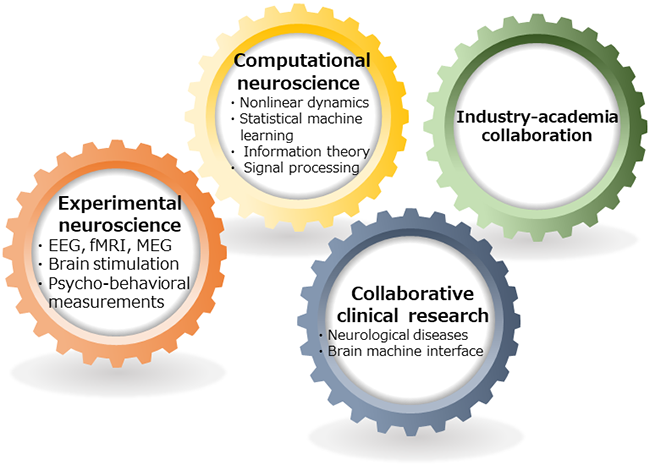We investigate the functional roles of nonlinear neural dynamics in the brain, which can be regarded as a dynamical system with large degrees of freedom, and is composed of a number of nonlinear elements (e.g., neurons and glia). The brain exhibits a variety of nonlinear phenomena. We investigate the functional role of nonlinear dynamics such as oscillations, synchrony, and noise-induced phenomena in brain information processing associated with perception, cognition, motor functions, and social functions from a computational neuroscience perspective.
We deal with EEG (electroencephalography), ECoG (electrocorticography),MEG (magnetoencephalography), and fMRI (functional magnetic resonance imaging) data in humans while human subjects are engaged in cognitive tasks, at rest, or during noninvasive brain stimulation such as TMS (transcranial magnetic stimulation). We analyze the brain data and try mathematical modeling based on nonlinear dynamical systems theory, information theory, signal processing theory, complex network analysis, and statistical machine learning methods.
We also analyze clinical data obtained from collaborators and try to understand clinical symptoms in terms of altered neural dynamics. Moreover, we try to investigate the relationship between neural dynamics and phenomena in different layers such as autonomic nervous activity and excitation/inhibition balance in neural circuits for the integrative understanding of functional roles of neural dynamics and thereby try to contribute to the scientific community and the broader society.
